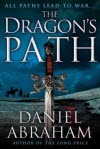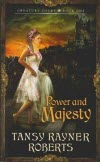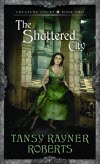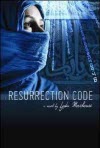Swords, Gold and Needlework
Cheryl Morgan looks at the opening volumes of two new fantasy series, and a postscript to an old SF series.
Daniel Abraham’s Long Price Quartet is one of the finest series of books I have ever read. It is right up there with Gene Wolfe’s Book of the New Sun. Other critics have been similarly appreciative, but the books have apparently been disappointing commercially. The epic fantasy market is very competitive, and critical acclaim is no guarantee of success.
Abraham, however, is a professional writer, and knows he needs to sell books to stay in business. When not writing epic fantasy he produces urban fantasy under the name of M.L.N. Hanover and, in collaboration with Ty Frank, is embarking on a third career under the name of James S. A. Corey. The Hanover books have not, as far as I’m aware, received the same level of critical acclaim, though that may be because they are seen as “for women readers”. I’m as culpable as anyone else here as I haven’t read them.

A new epic fantasy series from Abraham, on the other hand, was high on my list of books to buy. I got a copy of the first volume, The Dragon’s Path [Purchase], at Eastercon, but by that time I had already started to see rumblings of discontent in the blogosphere. Then I started reading the book, and saw why. I was so disturbed by what I was reading that I took the unusual step of seeking outside opinion before finishing the book. Fortunately the May Locus arrived just when I needed it, and included a review by the perceptive Paul Witcover. This served only to confirm my fears.
Like me, Witcover is a fan of the Long Price books. He describes them as, “a quiet marvel of gesture and implication all the more powerful for its restraint and understatement.” His opinion of The Dragon’s Path is far less complimentary:
This is a sprawling, muscular fantasy, with many viewpoint characters, set in a complicated, messy world that seems stitched together from a number of sources both literary and extra-literary. […] The stew resulting from the combination of these diverse ingredients is sometimes surprisingly savory, sometimes disappointingly bland.
Oh dear. That’s exactly what I was thinking.
To start with there is the setting, a cookie-cutter mediaeval fantasy continent whose map, if you squint at it, is a bit like Europe. It is populated by true men (“Firstbloods”) and various races of hybrids: dog-men, bug-men, lizard-men and so on. Abraham livens it up a little by suggesting that we are looking at a post-technological world — there is one character who is able to do “magic” thanks to what are clearly nanobots in his blood. Overall, however, it feels like the sort of world I might have created for a role-playing campaign when I was 18.
Then there are the characters. Most of my favorite books contain characters who are very recognizably real people. Successful genre literature (and for the meaning of my use of the word “genre”, please see here), on the other hand, tends to contain characters who are more over-written; the sort of stereotypes you tend to see in television drama.
Elsewhere you may see this described as “good characterization”; the characters perhaps described as “vivid” or even “larger than life”. It is something that many readers (and viewers) like, and there’s probably a paper to be written on George R.R. Martin’s approach to the issue. Real people, however, are not often larger than life. That’s a statistical truth if nothing else.
Anyway, The Dragon’s Path is full of such people. Take Marcus Wester, for example. He is the gruff, competent mercenary captain with a heart of gold. Such characters often have a dead woman “in the freezer” to give them motivation. Wester has two: his wife and daughter, both killed before the book starts. He also has a trusty, loyal second in command, who very obviously is one of the Tralgu dog-men.
Witcover notes that the book shows influences from Dorothy Dunnett’s excellent House of Niccolò series, and indeed it does. Nicholas de Fleury, being a banker, was never quite as sexy as Francis Lymond, and consequently his series has not become so famous. Abraham chooses to replace Nicholas with a teenage girl, Cithrin Bel Sarcour. It is clever, in that it gives female readers a character to identify with and gives Wester someone to protect.
Elsewhere we have Baron Dawson Kalliam who is a stereotypical right-wing nutjob. He’s deeply racist, he despises the lower classes, and is always wanting someone disciplined to safeguard Tradition. Abraham does a reasonable job of trying to make him understandable, but it is hard to treat him as anything other than a dangerous joke, especially when his wife, Clara, is so much smarter than he is.
Finally amongst our major viewpoint characters we have Sir Geder Palliako, an overweight young nobleman with a passion for books and “speculative essay”. He’s a geek, and as such is the victim of many pranks played by the other young noblemen. Also, despite his considerable learning, he has no idea how the world works, and consequently makes a very convenient fall guy in court politics.
On the back page of the book there is a blub by Brandon Sanderson in which he says, simply, “Daniel Abraham knows what he is doing!” Sanderson, of course, is someone who has been very successful at giving epic fantasy fans what they want, regardless of what stuck-up critics like me might think of his books. It is hard not to read that quote as Abraham’s publishers saying, “this time our boy is going to deliver something commercial.”
And well he might. If he does I shall be very pleased, as he deserves commercial success. But will I still want to read it?
Well, as Witcover says, some parts of The Dragon’s Path are surprisingly savory. Good commercial fantasy, for example, needs to be leavened by wit, and occasionally Abraham comes up with dialog that is both amusing and perceptive. Here’s Marcus Wester being interrogated about his religious beliefs:
“And what about you, Captain?” he asked. “Stories are you were a pious man once.”
“I choose not to believe in any gods as an act of charity,” Marcus said.
“Charity towards whom?”
“Toward the gods. Seems rude to think they couldn’t make a world better than this,” Marcus said. “Do we have any food left?”
Then there is our geek boy hero, Geder Palliako. Clearly he is someone whom geek boy readers are supposed to identify with. But he’s no plough-boy-to-prince character, at least not yet. Abraham is keen to show that the world is a much more complicated place than it might seem from reading “speculative essays”. Dawson Kalliam might have a pretty simplistic view of politics, but even he can see that Palliako is hopelessly wet behind the ears. Here’s how Baron Kalliam explains that Palliako is just the sort of useful idiot that his plans need:
“Worse than dim, one of those men who only knows what he’s read in books. He’s the kind who reads an account of a sailing voyage and thinks he’s a captain.”
I get the feeling that, in Kalliam and Palliako, Abraham is talking directly to some of his readers: the Leo Grins of this world with Kalliam, and equally earnest if less authoritarian readers with Palliako. I want to see where he’s going with this.
Finally I’d like to come back to our friend with the nanobots in his blood. He’s not the only one. There’s a whole religious cult of them. For most of the book they are hidden far away — in the world’s equivalent of the Middle East, naturally — but, as Witcover notes, Abraham is echoing ideas from R. Scott Bakker’s excellent Prince of Nothing series, so it will not be long before people with actual power cause havoc in the mediaeval world that most of the characters inhabit. One of the things the priests can do is tell for certain whether someone is lying or not. It is a useful power, but as the high priest explains it can’t be used on the written word. If you read a passage from a book he can’t analyze it:
“Is that true?” the priest asked him. “Is it untrue?” Do you mean what you say? No, old friend. It’s neither. Your voice carries nothing. They are only words you repeat emptily. To write a thing down is to kill it. Only in the living voice can the truth be known.”
And that is a comment that could have come straight out of Embassytown.
Now I’m intrigued.

Abraham’s book is about war and finance. The series title — The Dagger and the Coin — makes that very clear. My next book this month, Power and Majesty [Purchase] by Tansy Rayner Roberts, has rather different preoccupations. One of them is needlework. Don’t let that put you off.
It took me a while to get around to reading this book. I bought it when I was in Sydney last year (the nice people at Galaxy Bookshop always find me good Aussie books that are hard to find elsewhere). The cover doesn’t help. As you can see, it shows a teenage girl in a flimsy dress against a background of a dark, brooding palace. It gives the impression of Princess Pink meets Emily Brontë. Don’t let that put you off.

In chapter 1 we meet our heroine, Velody, a fresh-faced, mousy teenager off to the big city of Aufleur in the hope of landing a job as an apprentice dressmaker. The evening before her big day she is unable to sleep and goes out onto a balcony, at which point a naked boy falls from the sky. He’s handsome and wild, and tells her she has magical powers. This is not what Velody wants, and she allows him to take them from her with a kiss. In chapter 5 Velody gets engaged to a nice young man — the brother of one of her best friends — who wants to be a bookbinder. You can see where this is going, can’t you? And you’d be wrong.
In chapter 6 Roberts kills off the homely fiancé, the whole of Velody’s family, and indeed her entire home town. This is the point where you realize that you are hooked, and you have to read the whole thing. Because if she is brave enough to do that, what else might she do?
Power and Majesty is the first volume of the Creature Court series. Somewhat reminiscent of Steph Swainston, it tells of a group of powerful people, several with superhero-style names, who fight to protect their world from an implacable enemy. Unlike Swainston’s Insects, however, the menace facing Aufleur is not living creatures, it is the sky itself. As in Anne McCaffrey’s Pern novels, deadly stuff falls from the night sky, or rather falls through it, as it appears that cracks open in reality to let it through. (Wisely Roberts has not explained this at all — she has two more books to go yet.) Unlike thread, the material that the sky throws at Aufleur cannot be burned, or hacked apart, it can only be destroyed by magic. And because this is a purely magical battle, the daylight world is unaware of what is happening.
There are other echoes in the book as well. With their magical powers and high-risk lifestyle the members of the Creature Court acquire strong libidos. Roberts has written erotica, and is not afraid to put real sex, hot and steamy, into her books. Fans of Storm Constantine might find a lot to interest them in this collection of fashionable, sexy, dangerous misfits.
Velody, of course, does not fit in at all. But we all know that she will have to take up the responsibility that comes with her power eventually. She just needs a little persuasion.
Rage surged through her, a burning anger. “No more games,” she said as heat prickled across her skin. “No more games, Ducomte! Tell me what I am!”
She felt her body shifting explosively within her skin, as if it were not quite hers any more. She was breaking apart, tearing into a thousand separate pieces.
Macready threw himself aside, shielding his eyes as Velody burst open, her body flying apart and finding new, small shapes to climb into. Suddenly she was everywhere, inside hundreds of tiny warm bodies with tiny unblinking eyes.
Little brown mice, she thought hysterically. Saints and angels, I’m little brown mice.
Now you know why the series is called the Creature Court.
If I have given you the impression that the book is derivative, that’s unfair. All writers have influences. Their job is to remake those ideas anew, and Roberts does so enthusiastically. Despite the promised trilogy format, this is not formula epic fantasy. It is closer to urban fantasy, but it is not a present-day story. Aufleur is based on Rome, complete with a Roman calendar (Roberts’ doctorate is in Roman history). And the setting is early 20th Century, with steam trains, sewing machines, jazz clubs and flapper fashions. It feels very different and new.
As fans of the Galactic Suburbia podcast might expect, it is also a feminist book. One of the themes of the story is leadership. Prior to Velody’s arrival, the Creature Court has been led by men, and exemplifies the “management by bullying” style of the worst of male-dominated cultures. Velody changes all that
“This is how you should win over the Court,” he said, half-serious. “They’ve been bullied and ruled and kinged over for so long. I don’t think anyone ever thought of mothering them to death.”
Her struggle is paralleled in the daylight world by that of Duchessa Isangell who has recently come to rule over Aufleur. In addition, as Roberts explains in this podcast interview, the book is about female friendship. Velody’s friends — wild, flirty Delphine who is disowned by her rich family for going into business, and vulnerable Rhian, the victim of a gang rape early in the book — are as central to the book as the exotic members of the Creature Court.

It is in some ways a hard trick to pull off. Roberts has to convince us that her queen mouse can talk a wild gang of cats, rats, foxes and so on into submission. I don’t think that she always succeeds, but it is still a marvelous effort. Other people seem to like her writing as well. Last year a short story of hers (not in the Creature Court universe) won the Washington Science Fiction Association’s Small Press Award. That’s quite an achievement for someone who lives in Tasmania and is only published in Australia. This year Power and Majesty won the Ditmar for Best Novel. The book is published by HarperCollins, who have a multi-national operation. Publishers are always complaining that they can’t find anything new, fresh and interesting to offer their audiences, and yet this book is not available in the UK or USA. I cannot for the life of me understand why.
A second volume, The Shattered City [Purchase], was released in Australia in April. Sadly rights restrictions appear to make the books difficult to buy from outside Australia. Perhaps if enough people ask for them Roberts’ agent will be able to secure wider publication.


Finally this month I’d like to make brief mention of a fairly short (less than 200 page) book, Resurrection Code [Purchase] by Lyda Morehouse. I reviewed her AngelLINK series (Archangel Protocol, Fallen Host, Messiah Node and Apocalypse Array) for Emerald City and very much enjoyed reading them. Since that series finished, Morehouse has mainly focused on the career of her alter-ego, Tate Hallaway, who writes paranormal romance, but Resurrection Code is set in the AngelLINK universe.
The new book centers on the character Mouse, the renegade hacker whose mouse.net system plays a crucial role in the story. Mouse is a true Cory Doctorow hero, a talented Egyptian programmer who takes it upon himself to provide an internet for poor people as the original has become dominated by commercial interests. In Resurrection Code he is on his way to Mecca for the hajj (at the prompting, of course, of his devout AI, Page), but he stops off in Cairo along the way to look for an old friend.
The story is told partly in the “present” and partly in flashbacks to Mouse’s life in Cairo shortly after the city was devastated by the collapse of the Aswan dams. Mouse and his young friend, Mohammad, are making a business catching American military drones and selling the tech. But Mohammad gets injured, and getting medical help is risky, especially when the patient happens to be transgender.
In the “present day” sections we learn that Mohammad has become both a trans activist and a religious leader. God, who has difficulty with gender issues, doesn’t approve, and sends Satan to temp him. The Morningstar, however, is nothing if not a rebel.
The book is full of gender themes, including an Egyptian nationalist cult of Osiris whose members castrate themselves in honor of their god’s unfortunate treatment at the hand of Set. There’s not much in the way of gender theory here, but Morehouse exudes warmth and support for gender non-conformant people. Along the way she also tells the story of how Mouse came to be Mouse. If you enjoy books that play with gender roles, or remember the AngelLINK series fondly, you should get Resurrection Code.
Interesting reviews. Haven’t read any of those authors (apart from Hunter’s Run, which Abraham co-wrote with GRRM and Gardner Dozois – and was very good), but I think I should certainly check out The Long Price series.